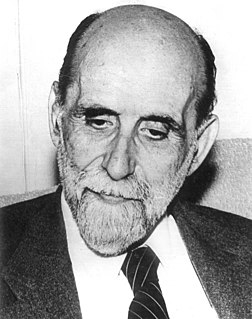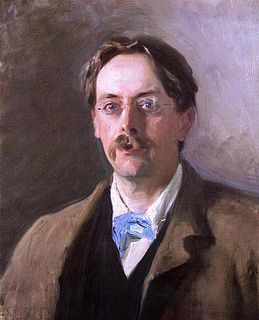A Quote by Swami Vivekananda
Who shall blame whom, who praise whom? Whom to seek, whom to avoid? I seek none, nor avoid any, for I am all the universe. I praise myself, I blame myself, I suffer for myself, I am happy at my own will, I am free. This is the Jnâni, the brave and daring. Let the whole universe tumble down; he smiles and says it never existed, it was all a hallucination. He sees the universe tumble down. Where was it! Where has it gone!
Related Quotes
God is true. The universe is a dream. Blessed am I that I know this moment that I have been and shall be free all eternity; ... that I know that I am worshiping only myself; that no nature, no delusion, had any hold on me. Vanish nature from me, vanish these gods; vanish worship; ... vanish superstitions, for I know myself. I am the Infinite. All these - Mrs. So-and-so, Mr. So-and-so, responsibility, happiness, misery - have vanished. I am the Infinite. How can there be death for me, or birth? Whom shall I fear? I am the One. Shall I be afraid of myself? Who is to be afraid of whom?
And what the people but a herd confus'd,
A miscellaneous rabble, who extol
Things vulgar, and, well weigh'd, scarce worth the praise?
They praise, and they admire, they know not what;
And know not whom, but as one leads the other;
And what delight to be by such extoll'd,
To live upon their tongues, and be their talk,
Of whom to be disprais'd were no small praise?
Only love for the Supreme Lord is true Bhakti. Love for any other being, however great, is not Bhakti. The "Supreme Lord" here means Ishvara, the concept of which transcends what you in the West mean by the personal God. "He from whom this universe proceeds, in whom it rests, and to whom it returns, He is Ishvara, the Eternal, the Pure, the All-Merciful, the Almighty, the Ever-Free, the All-Knowing, the Teacher of all teachers, the Lord who of His own nature is inexpressible Love."
There are really three players: 'absolutists', for whom it is possible to describe reality as it anyway is; 'constructivists' or 'humanists', for whom there is nothing beyond a world that is relative to human interests and conceptual schemes; and 'ineffabilists', like myself, for whom any describable world indeed exists 'only in relation to man', as Heidegger put it, but for whom, as well, there is an ineffable realm 'beyond the human'.
When one acts on pity against justice, it is the good whom one punishes for the sake of the evil; when one saves the guilty from suffering, it is the innocent whom one forces to suffer. There is no escape from justice, nothing can be unearned and unpaid for in the universe, neither in matter nor in spirit—and if the guilty do not pay, then the innocent have to pay it.
If I murmur in the least at affliction, if I am in any way uncharitable, if I revenge my own case, if I do anything purely to please myself or omit anything because it is a great denial, if I trust myself, if I take any praise for any good which Christ does by me, or if I am in any way proud, I shall act as my own and not God’s.




































